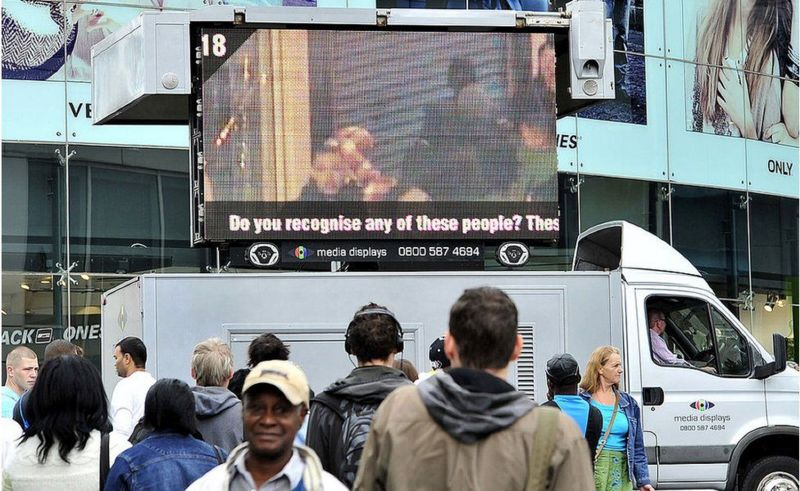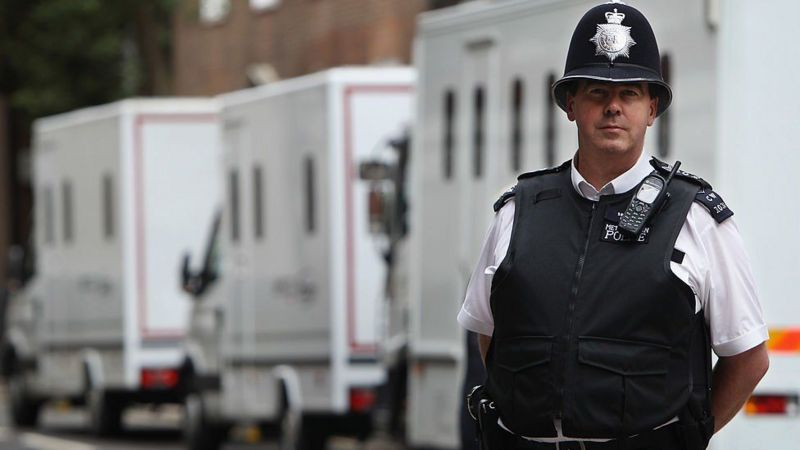According to the BBC; On the afternoon of Saturday, August 6, 2011, about 300 people marched from Broadwater Farm in London to Tottenham Police Station. They are calling for “justice” and “accountability” in connection with the death of Mark Dugan, a local man who was shot dead by police two days earlier.
“We protested with his family. We went there to talk to a senior police officer and they said it would take a few hours.”

“The delay lasted about five hours. Finally, a senior member of the police came out and said, ‘The police can’t deal with this now,’ and we have to come back another day.”
“People stopped in the middle of the street and closed it to show the police that we are serious and we are not going anywhere.”
“I personally remember lying in the middle of the street so there was no traffic.”
“I lay on the street and others joined me. It probably lasted for about eight nights and I remember the senior police, whoever it was, never came out again.”
“And I thought, ‘We’re going to a war.’
London was engulfed in fire and violence for five nights.

Unrest swept across the UK, including Birmingham, Salford, Manchester, Liverpool and Nottingham.
At the end of the riots, five people were killed, including a 68-year-old man who was attacked and killed while trying to contain a trash fire.
Dozens were left homeless and more than 200 people were injured, most of them police officers.
There was no government inquiry into the causes and consequences of these riots.
A social survey entitled “Review of the Riots” was conducted by the London School of Economics and the Guardian newspaper, and interviewed 270 people involved in the riots. These conversations took place anonymously so that those involved could speak freely.

It is about six-fifteen in the evening when the police stopped a taxi that “Dugan” was riding in.
A capital police unit dealing with gun-related crimes in London’s black communities was monitoring the duo. The secret police pursue Dugan with a man whom the police suspected of selling him a weapon. The purpose of the police mission was to collect weapons from the streets of London.
When the car stops, the suspect jumps out. A police officer fires twice. The first bullet passes through the 29-year-old double arm and hits another police cord. The second bullet, however, hit Dugan in the chest. This is a deadly bullet.
The guns were found about seven meters away from where the double was fired. It was not fired.
The Independent Police Complaints Committee later stated that “journalists may have been given incorrect information on the basis of which an exchange of fire took place between Dugan and the police.”
Friday 5 August
Two family members identify the body. Death news is spread through those who knew him.
According to the findings of the Police Complaints Committee in 2012, the capital police did not provide sufficient information about Dugan’s death to his family, nor did they provide adequate support or information about the latest information in the case.
Saturday 6 August
People who had gathered outside Tottenham Station were suspended for five hours, realizing that no police were available to address their concerns.
The nature of the protests changes from peaceful to tense. The bottles are thrown at the police car. One of them burns in the fire; Another is pushed to the middle of the street before it ignites.
Groups of people are coming to Tottenham from other parts of London.
“Bricks and incendiary bombs were thrown. At that time, the protesters were in control and many of them knew this. When we left the parking lot, the van was constantly attacked.”
“Perhaps what scared me the most was that he was being pulled out of the car.”
“Some people think that the police are just unknown robots. We are not robots. When I returned home, my wife and children were scared.”
We jumped in the car, about six people, we went there. Smooth to the war zone. “
“Police were pouring in from everywhere. Anger and despair were everywhere.”
“I grew up with Mark, the police always stopped both of us. But it was as if they took the dirty game to a whole new level.”
Anti-riot police are sent on horseback to disperse the crowd. People attack them with bottles, fireworks and fireworks.
Hours later, a double-decker bus caught fire. The shops are set on fire. Looting begins. Various shops are looted.
Without manpower for mass arrests, the police’s priority is to disperse people so that their fire engines can extinguish burning buildings.
News of the violence spreads and attracts more people to the scene, including those who are curious.
“My fourteen-year-old daughter showed me a picture on her phone of a burning car. She said, ‘Mom, this was on Tottenham Main Street.’
I said to my daughter, “Do you want to go there and see what happened?” “We went by bike.”
“We went to the corner of a small shop because I did not want anything to explode and burn me. We were like nurses because all the wounded came to us. I saw people with their hands ripped open and their skin hanging down.”
“I would give them ice water. I would wash their wounds and tell those who were not badly injured to ‘go back and fight’ because I did not care.
“I think the police had a right to see a thorough investigation. They have no right to go and kill someone who has nothing to do.”
After the riots, the government did not provide an official report, but there were reports from other institutions.
The reasons for the unrest were opportunism, social exclusion, dissatisfaction with the police and unemployment, but no conclusive reason was found for what happened during those five days in August.
In the following days, the police were severely criticized. Capital police later confirmed that the inability to monitor social media meant that police could not have ruled out such a situation sooner.
Analyzes following the riots showed that the inadequate number of police was a weakness, and that the police sometimes had to act more quickly and decisively, and that the available information was incomplete.
The reports praised the courage of the police on the front lines.

The British Ministry of Justice put the total number of criminals at 1,292 who were imprisoned for their actions.
Looting was seen as an aggravating factor. Sentences were longer and more people were sent to prison.
“At least as I get older, I can tell my kids and grandchildren, ‘I got into a riot,’ is a good story for them, isn’t it? You know, it’s like World War II and my grandparents.”
“I have no regrets. If it happens again, I will be happy to join it. Anything against the police, I will be happy to join.”
“Everyone is happy that it happened. Everyone.”
“I was not there to steal. I was there for revenge.
“I will always remember that day when we instilled fear in the police and the government. For a moment, they were on the edge, the feeling we had, now they felt it. They felt threatened by us. “
“Those three days were the best three days of my life.”
“When I got up on Tuesday afternoon and called the office, I was told I did not have to come until 6 o’clock. I had the opportunity to take my dog to the park to walk.”
“It was almost weird considering it was a relaxing first time, and no one was trying to kill me. It was great.









